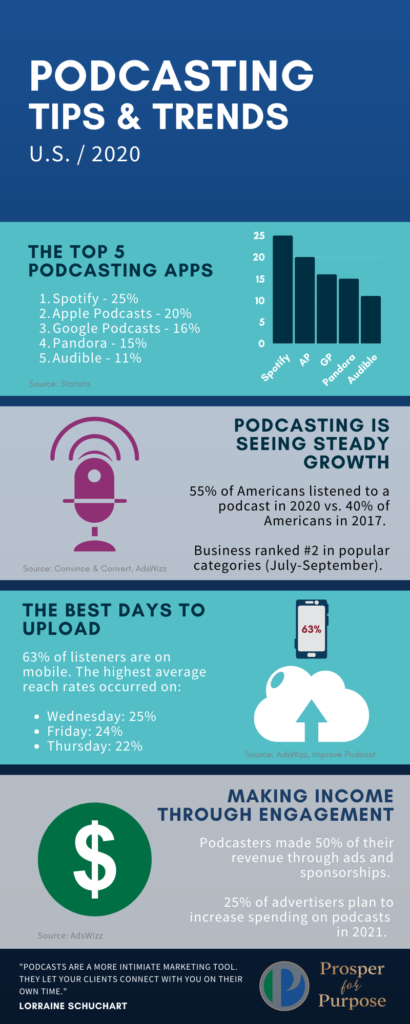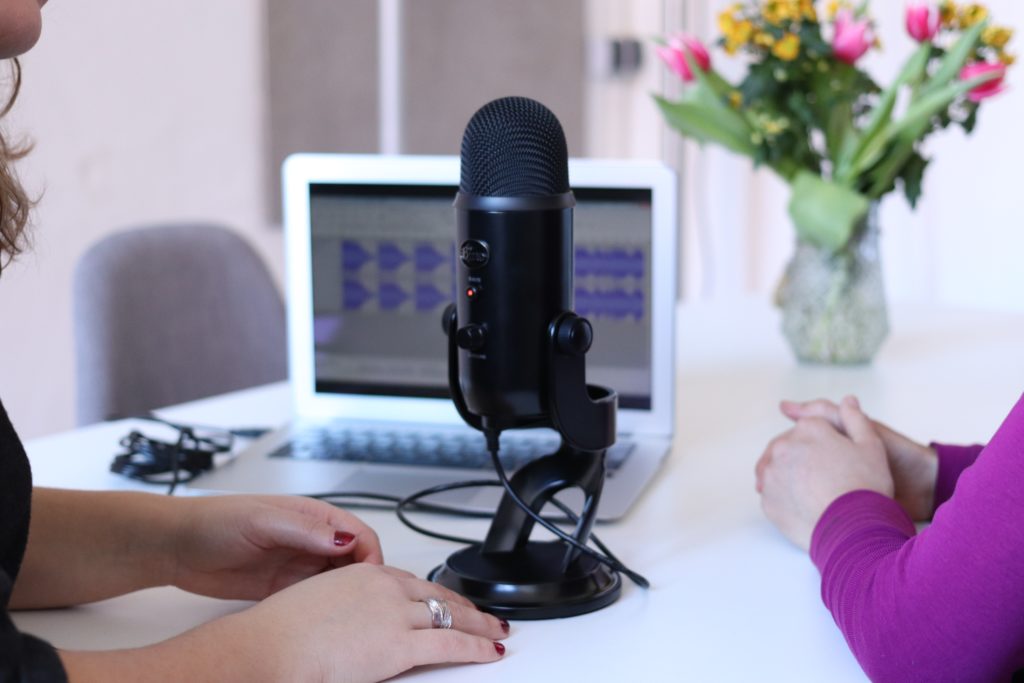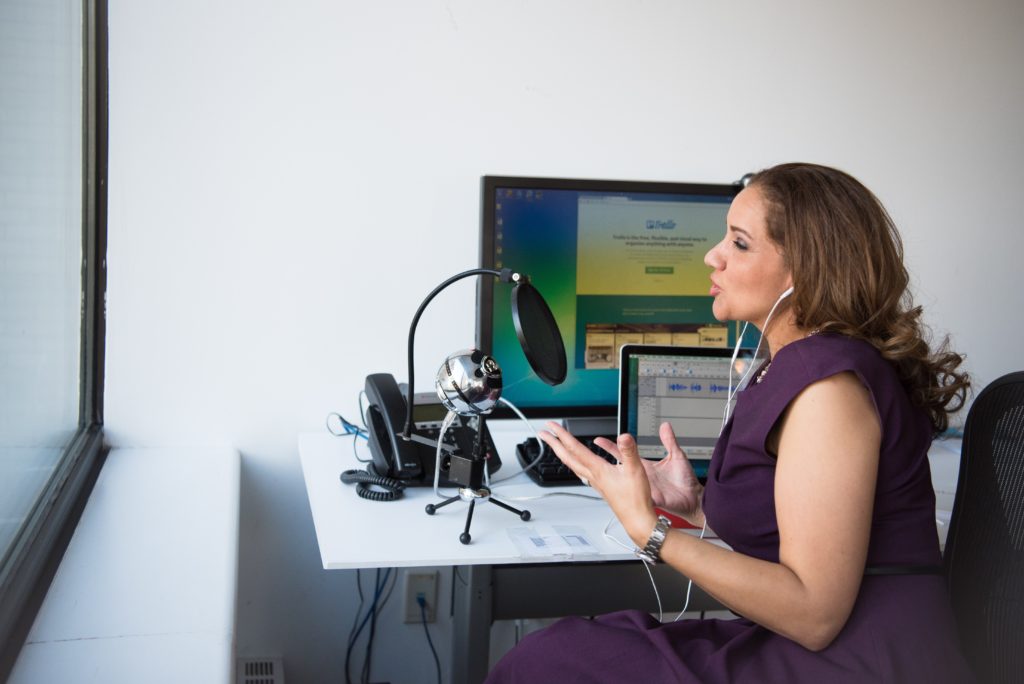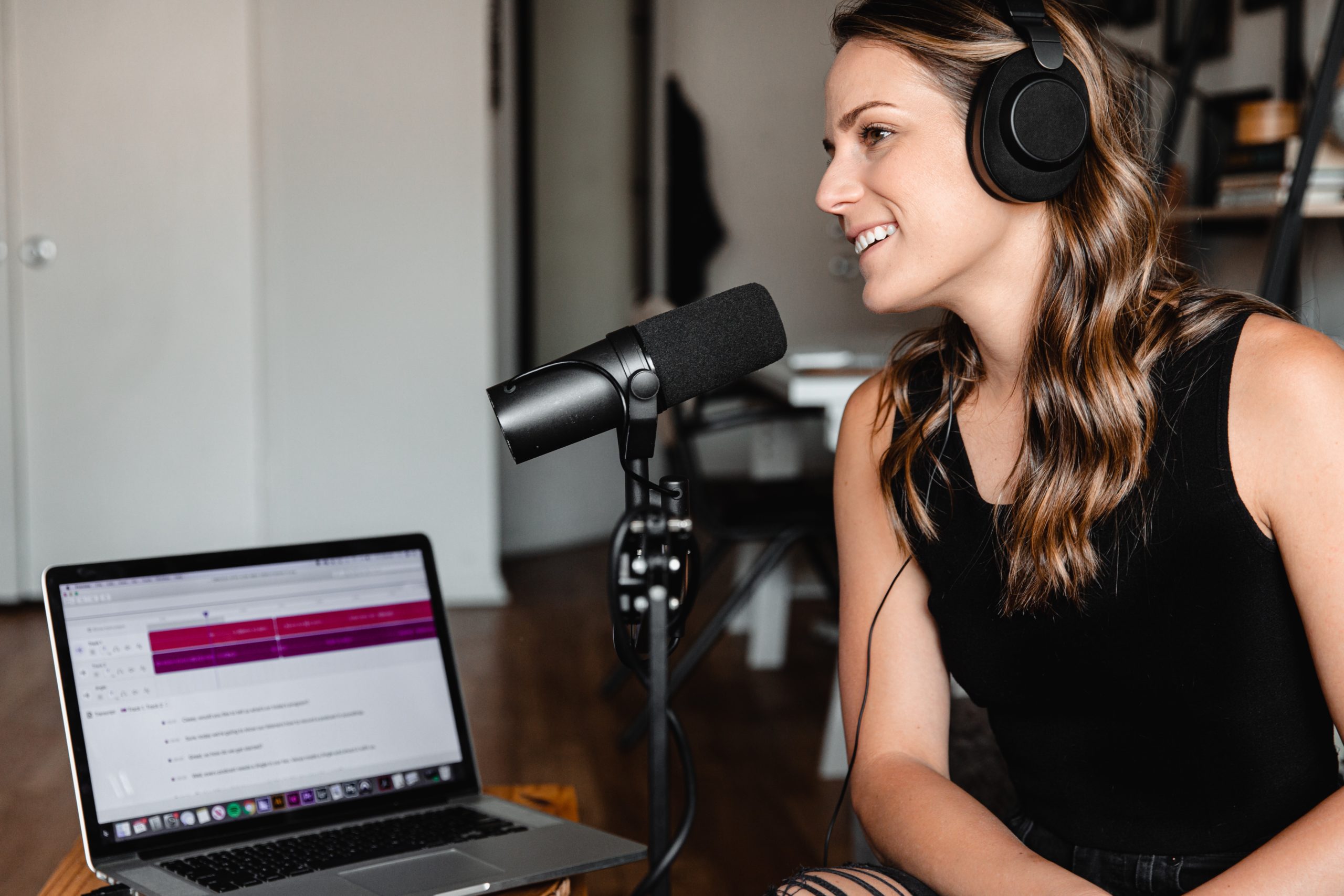More Americans are turning to podcasts for entertainment and knowledge in difficult times, and businesses need to tap in. Podcasting is a fantastic tool to spread the word about your business while eliminating excess marketing costs. We’ve created a cheat sheet with essential tips for developing a podcast and encouraging your listeners to come back for more.
But first, we made an infographic with key points about how podcasting has evolved this year. Feel free to download, share, and post to remind everyone in your network about the rise of podcasting:

Podcasting Boosts Branding for Less
If you need to strengthen your branding and marketing strategy on a dime, podcasting is a good place to start. According to Live 365, a budget-friendly podcast costs $290. For under $300, you can:
- Convey customer appreciation
- Emphasize your company’s values
- Demonstrate your knowledge and experience
- Put your personality front and center
- Prompt listeners to discuss and share your content
Improve Podcast predicts that by 2022, 59% of people between the ages of 25 and 49 and more than one in three people under the age of 24 will plug into podcasts on a monthly basis. More people age 55 and older will also listen to podcasts in the future — around 26%.
Above all, the 2020 Podcasting Trends Report proves that podcasting is a part of the ebb and flow of life. Where we once saw narrow peak listening windows, now listeners regularly tune in from 8 a.m. to 8 p.m. during the week. Podcasting lets you connect with your clients on a more intimate level. And unlike webinars and Live sessions, they let your followers multitask while they learn with you.

7 Strategies to Create a Compelling Podcast
There is no singular way to approach organizing, writing, and producing a podcast that smashes your expectations. But there are a few essential rules of thumb to follow to ensure you don’t stunt your show’s growth:
Your podcast must have a purpose
Exceptional podcasters outline clear goals for producing content. They know why they need to make a podcast now and how it will elevate their business. Here are some questions to ask during your podcast’s early development stages:
- Do you want to increase your sales volume without spending money on targeted ads and other traditional forms of marketing?
- How can you utilize your unique knowledge and experience to create content that listeners can apply to their lives?
- How does the title of your podcast, as well as the titles of the first 3-5 episodes and their descriptions reflect what you want to achieve? Is your podcast copy SEO-friendly?
- If a listener had to describe your podcast in a paragraph or less, what would they write? (Pro tip: You can use this description for your podcast’s formal summary.)
Each episode of your podcast needs a purpose, too. It needs a clearly defined middle, beginning, and end with references to where you will insert your key points, including calls-to-action, paid promotions, and affiliate links (if applicable). When you book guests, prepare a list of questions or topics for discussion.
Pick the ideal category for your podcast
It’s tricky to rebrand a podcast once it gains momentum, and choosing the right category is essential. You can select several categories and subcategories, but the primary category is the most important for directing listeners to your content. (For more help, review The Podcast Host’s summary of the best categories and subcategories to choose.)
According to the 2020 Podcast Trends Report, podcasts in these categories performed well:
- News
- Society & Culture
- Comedy
- Sports
- Education
By no surprise, self-improvement, entrepreneurship, and personal journals ranked among the top performing subcategories. More Americans than ever before are fulfilling their dreams of starting a business; for some, entrepreneurship is the answer to being laid-off.
2021 is the optimal time to start a podcast about your entrepreneurship journey. Not only will you save on marketing, but you can also inspire others to take the plunge and start a business. Depending on your level of expertise, your podcast can even be the jumping off point for B2B coaching.
Aim for quality over quantity
According to Improve Podcast, the ideal podcast episode is 50+ minutes long. However, don’t rely on fluff and filler to reach the 50-minute mark. Every segment should underscore your podcast episode’s bigger ideas and reflect your brand values.
If you choose affiliate marketing, flesh out your episodes with in-depth product reviews that support your sponsors. Listeners are more likely to buy an advertised product if you craft a stellar endorsement. Interviews also help you create lengthier, engaging content.
Write detailed show notes for each episode
Publishing show notes on your website adds an additional layer of structure to your podcast. For instance, a written outline of instructions with time stamps enhances how-to content. If you close with a call-to-action to download free content in exchange for a newsletter sign-up, create show notes with the download link. Each podcast episode’s show notes can potentially attract new listeners from the web, if you incorporate the right SEO keywords.
Ensure your podcast remains relevant
New subscribers, especially super listeners, are more than likely to listen to your old episodes. The easiest way to stay up-to-date? Re-upload the episode with an improved introduction. Daniel J. Lewis recommends inserting an announcement at the beginning of the episode directing listeners to important new information in the show notes.
Conduct audience surveys and polls on social media
Google Ads, word of mouth, self-promotion, and good content helps grow your podcast audience. The trick is ensuring that your listeners stick around. The simplest and most effective way to build listener loyalty is by posting audience surveys. Try Google Forms for no charge, or upgrade to a paid plan with SurveyMonkey for enhanced features.
Additionally, you should poll listeners who follow you on social about their topics of interest. This is a powerful 2-in-1 for conveying audience appreciation and directing new followers to your podcast.
Establish your authority by featuring experts
Booking podcast guests that have clout in their niche can increase your trustworthiness. But featuring your competitors won’t elevate your business unless you take the cross-promotional podcast route and have a specific purpose for their appearance.
Remember: Your guest’s expertise should never overshadow your work. For example, you might have an audience Q and A session where you and your guest each take turns answering questions from your social media surveys.

Monetizing Your Podcast With CPA vs. CPM
Even if you start your podcast as a passion project, you should use it to fund your business. Edison Research discovered that 49% of podcast super listeners (people who listen to podcasts more than five hours per week) agree that podcast ad rolls are the best way to extend brand reach. Researchers also found that super listeners are on the rise, due in part to the changing landscape of life in the pandemic. In other words, it’s easier than ever to earn money from podcasting if you plug your products or become an affiliate marketer.
There are two primary monetization models for podcasts: Cost Per Acquisition (CPA) and CPM (Cost Per Mille).
The CPA Model
The CPA model is simple: By acquiring customers for another brand, you turn a profit. Dropping a link to the company in your show and the show notes usually gives listeners a discount, a major plus for making sales. Affiliate marketing is easier for established podcasts with a larger following. Popular affiliate marketing opportunities for podcasters in 2021 include:
- Amazon Associates: suitable for all types of podcasts
- Skillshare: for Education and Social & Culture podcasts
- Buzzsprout: ideal for business-centric podcasts
- Fusebox: earn 30% in commission if your show is about tech and podcasting
- BarkBox: make extra bucks if you create podcasts for dog owners
- Fiverr: take home around $15 per every new customer referred
The CPM Model
You can cash in on episodes of your podcasts with one thousand downloads or more. Most advertising agencies pay between $25-50 per mille (thousand) downloads, but smaller agencies usually offer under $30. This method works if you:
- Proactively promote every episode of your podcast on your social media channels, blog, and newsletter
- Develop SEO-based, content rich show notes with sneak previews for next week’s episode to generate intrigue
- Commit to consistently outputting high-quality content
The CPM route works best if you’re a new podcast, a niche podcast, and don’t currently have a wide following. When you reach an average of one or two thousand downloads per episode, think about shifting to or adding on the CPA model.
No matter which podcast monetization model you choose, you should always subtly weave self-promotion into your podcast. Make it a point to remind your listeners about your company’s mission, why your work matters, and what gives you an edge in your niche.
Do you run a podcast for your business? Feel free to chat about your experiences in the comments section or drop a link to your latest episode!

LEAVE A COMMENT
Comments